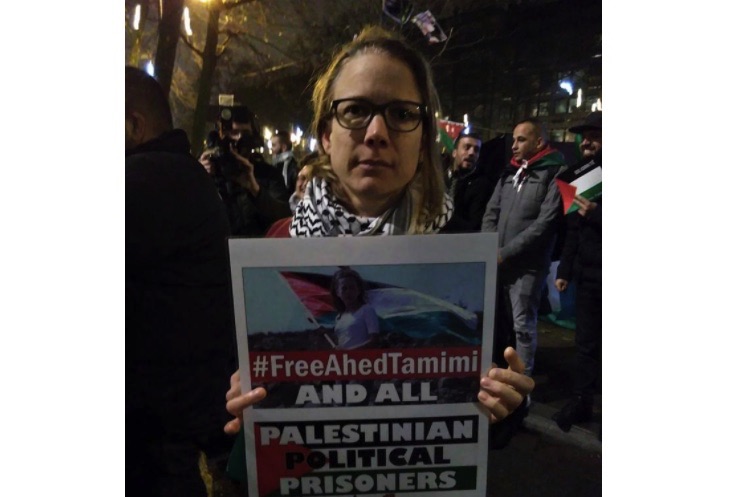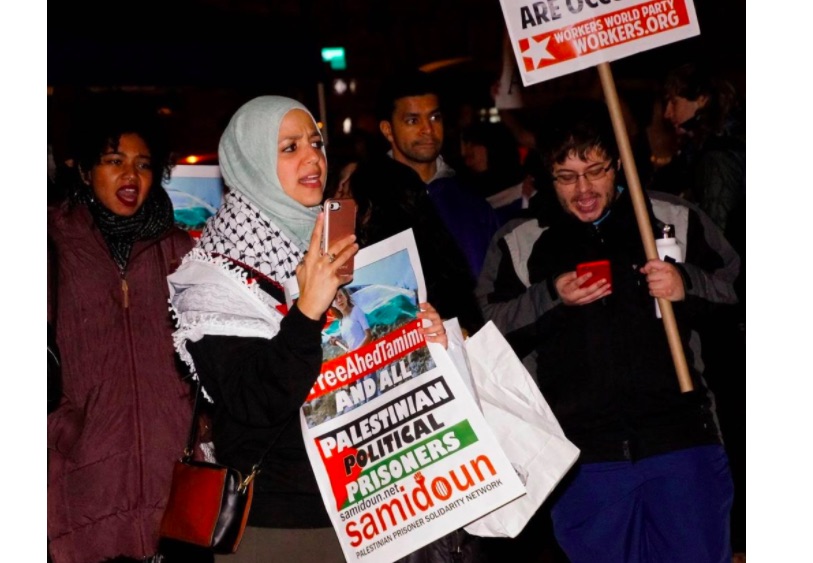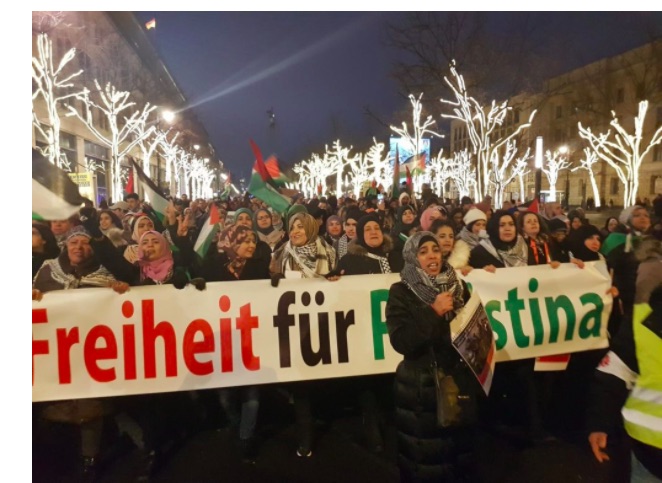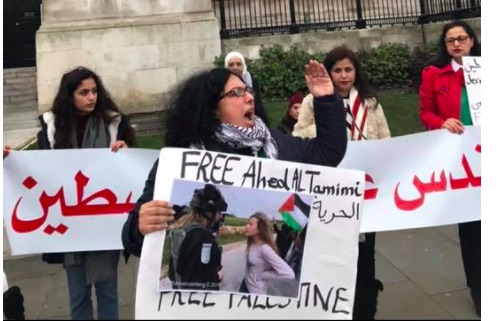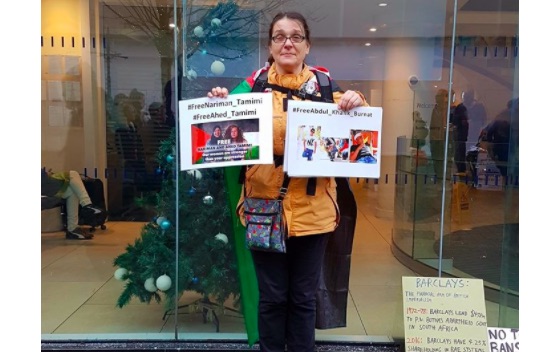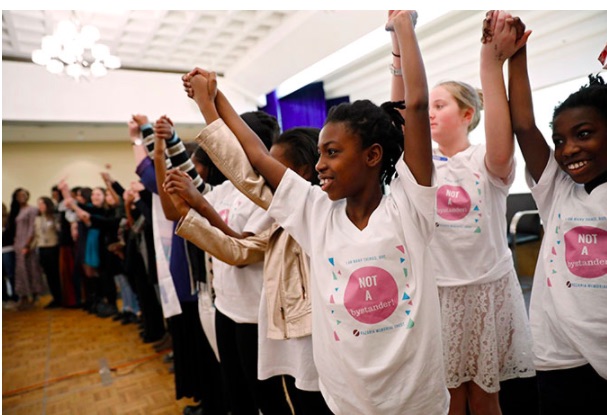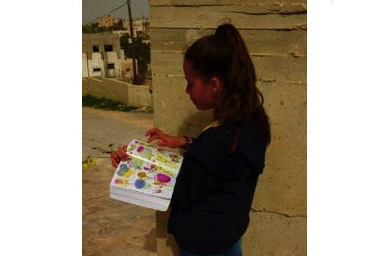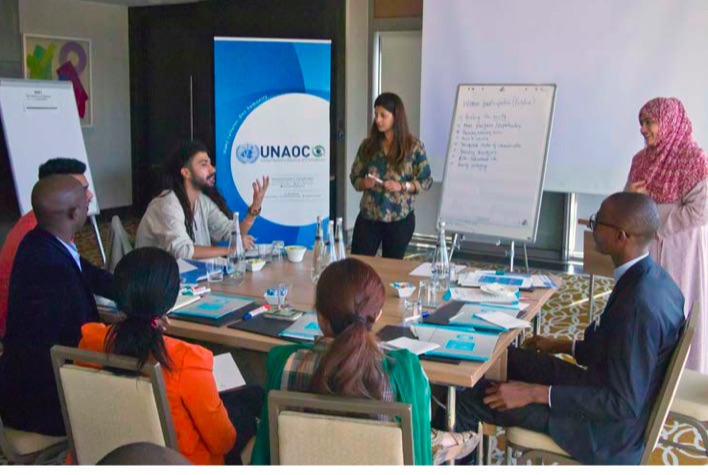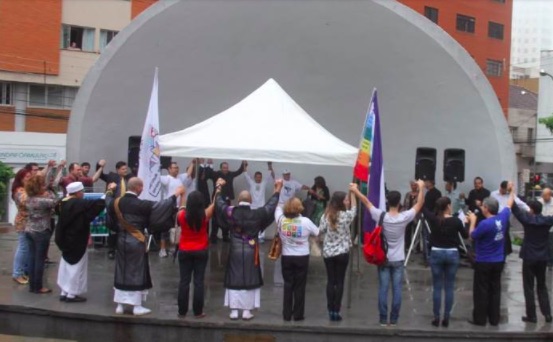TOLERANCE AND SOLIDARITY .
A article by by Markeshia Ricks in the New Haven Independent
A week after President Trump delivered his State of the Union Address, Mayor Toni Harp delivered a “state of the city” address that put New Haven squarely in the camp of the anti-Trump “resistance.”
In front of a full aldermanic chamber at City Hall, Harp painted a picture of a city resistant to Trump’s vision for America, resistant to Connecticut’s cities-vs.-suburbs mentality, and resistant to any notion that New Haven isn’t a city on the rise. She borrowed a word — “resistance” — that has become a phrase for local movements across the country formed to oppose the current administration in Washington.

Video of Mayor’s speech
A year ago, Harp said, no one could have predicted that “we would be dealing with such a dramatically altered political, social, and economic landscape.”
“In that context, tonight, I would describe the state of New Haven as resistant to these frightening trends in this nation toward what would be a new normal -– a Republic, a state, and a civic life so different as to be unrecognizable to most of us,” she said. “New Haven is resistant to these would-be, new standards not for the sake of being contrary, and not because it’s stylish or politically correct to be, but because these new standards are contrary to the best interests of this city, its residents, and its future.”
Harp said that New Haven continues to offer a hand to its residents even though there is “a trend in some government circles to neglect or abandon the aged, the vulnerable, and those who simply can’t keep up.
“Social services for veterans, the elderly, the formerly incarcerated, the homeless, the disabled, the addicted, and the mentally ill seem to fall increasingly on the shoulders of local providers, as federal and state support dwindles,” she said. “Going forward, New Haven must resist the temptation to follow suit: in my opinion, a community is measured by the care it provides for those who cannot provide – or speak up – for themselves. Tonight, I’m pleased to say that in this regard, New Haven continues to measure up.”
Harp said all of the progress that New Haven has made “reflects an undeniable collaboration.”
“In New Haven, elected officials, city workers, residents, volunteers, students, immigrants, and a host of other city partners make this a vibrant, attractive city, committed to its better days ahead. New Haven is resistant – and will continue to resist – a laundry list of frightful trends in America,” she said. “Perhaps most frightening among them is a deliberate attempt by some in this nation to deny benefits of the American dream—safety, security, education, healthcare, opportunity — to any number of Americans for completely arbitrary and unjustifiable reasons.
Harp said New Haven has “resisted” by rallying to the side of displaced Puerto Ricans with ongoing aid and relocation assistance; by partnering with Bridgeport in a long shot but, alas, failed bid for Amazon’s second North American headquarters; and by creating a favorable climate for development that is starting to pay dividends downtown and beyond. She also noted that since she took office New Haven’s unemployment rate has dropped from 10.3 percent to 5.1 percent.
“This city continues to resist any notion that big ideas are too much to handle in challenging times,” she said. “The new Boathouse at Canal Dock, a major redesign for the rest of Long Wharf, and continuing progress on Downtown Crossing reaffirm this. Phase 2 of Downtown Crossing will get started this year, continuing the process of stitching back together parts of town that were unduly separated generations ago.”
“As I complete my assessment of New Haven this year, and as I assess the state of other cities nearby and frankly, across the nation, there isn’t a city I envy, there isn’t a city I’d rather serve as mayor, and there isn’t a community of people I’d rather be with as we tackle a daunting agenda under these current, challenging circumstances,” she concluded.
(Article continued in the right column)
Questions related to this article:
The post-election fightback for human rights, is it gathering force in the USA?
(Article continued from the left column)
Alders Praise Vision, Seek Details
Several alders were getting their first taste of the mayor’s “state of the city” address as a member of the Board of Alders, and they found a lot to like.
Yale Alder Hacibey Catabasoglu said he was happy to hear about the city’s infrastructure and the improvements that have been made, such as the wifi on the Green and efforts to help small businesses. He applauded the city’s efforts to bring in companies like Goldman Sachs to teach small immigrant business owners like his father.
He added that he would have liked for Harp to talk a little bit about youth activism in the city and how their political activism helps New Haven resist.
“The youth are the ones that are going to be the decision makers and I think it would have been nice for her to touch upon that,” he said. “But overall, I thought it was a wonderful speech.”
First-term Newhallville/Prospect Hill Alder Kim Edwards said she found the mayor’s message about the state of the city to be positive and upbeat.
“We sound like a city that’s thriving,” she said. “There are many things we need to work on and we have to make sure all of our population is included in the decisions that we make daily.”
Edwards said while she knows there is much work ahead on the budget, she said she was impressed that the city has managed to cut its unemployment rate nearly in half.
“We need to keep on that trend and we need to make sure that they are living wage jobs,” she said. “We live in a high tax state. So we need to not just use the words living wage. They actually need to be living wage jobs.”
Downtown Alder Abigail Roth said listening to Mayor Harp Monday night reminded her of how proud she is of the Elm City. “I liked her theme of a city that’s resistant, especially with the state of our country today,” said Roth, who attended one of the original “resistance” events, a D.C women’s march coinciding with Trump’s first inauguration weekend. “It feels good to be in a city where people’s values align with mine and the mayor’s values on so many fronts.”
But like Edwards, Roth noted that the upcoming tango with the budget is on the horizon. And Harp didn’t have a lot to say about that in her address aside from mentioning the reduction of overtime in the fire department.
“If you look at the [monthly] budget reports it’s something we have to be concerned about,” Roth said. She noted, for instance, a recent story in the Independent about a police psych-exam contract problem that is delaying the seating of an academy class and leading to increased overtime costs. She called the issue “a huge concern.” “That’s not to take away from what she said in the speech,” Roth added. “There were a lot of positive things but the city’s budget is a very serious thing that we’re going to have to focus a lot on.”
There will be time for focusing on that soon enough for Morris Cove Alder Sal DeCola, but Monday night the mayor’s speech had him focused on the positive.
“There are a lot of good things that are happening for New Haven,” he said. We’re always hearing the negative and she was talking about all of the positive things. I wish more people would focus on the positive. The bad’s always going to be there. I have this saying, ‘Every flower garden has weeds in it; look at the flowers.’ We know the weeds are there; enjoy the flowers. That’s how I look at it.”
Fair Haven Ernie Santiago saw some flowers when he heard Harp say that a sweep that helped the city assess the needs of Newhallville last year will make its way to his community.
“That was very good news,” he said. “Finally, Fair Haven is going to get its due. Now, we gotta see if it comes to fruition and how much is done because we do need a lot in Fair Haven. We’ve got the worst streets, the worst sidewalks. I feel good about hearing what I heard. She gave a good speech. It’s always good to hear they’re going to work on your ward.”
Freshman Newhallville/Prospect Hill Alder Steve Winter said he appreciated the message of resistance and believed it was needed. He also noted that he’s interested in hearing more about how the digitization of city services and other technology could help the city maintain a high level of service in a tough fiscal environment.
“With values and institutions under assault, it’s important to have our leaders and our colleagues remind us of why we have to do what we do and why you have to keep going,” he said.
